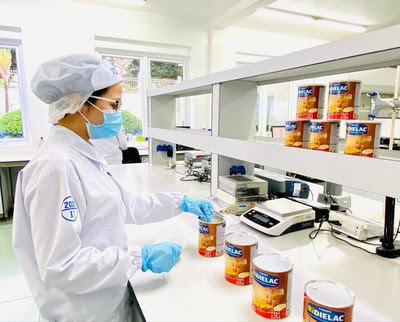En tirant parti des prix attractifs de l’acier pour amener davantage de navires vers les chantiers de recyclage
SINGAPOUR, 30 août 2021 /PRNewswire/ — Les navires sont envoyés à la démolition généralement après 15 à 20 ans d’utilisation. Cependant, la pression de la pandémie a contraint certains armateurs à lever des capitaux grâce à une mise au rebut précoce des navires, profitant ainsi des prix attractifs de l’acier. La nature cyclique de la démolition de navires constitue également un défi pour de nombreux armateurs qui doivent profiter de la période où les prix de l’acier sont les plus élevés. Marine Online comble le fossé entre les armateurs et la fluidité du marché en offrant des informations fiables, permettant aux armateurs de maximiser leurs investissements aux bons moments.
L’équipe de Marine Online a une connaissance approfondie des dernières tendances du marché, y compris du secteur de la démolition. Dotés d’une forte capacité d’analyse, les armateurs peuvent s’attendre à des résultats de négociation favorables grâce à des conseils avisés sur les mouvements du marché. De plus, l’équipe de Marine Online est toujours prête à proposer les meilleures recommandations possibles dans l’intérêt des clients.
Bharat Bahl, responsable des ventes et des achats de Marine Online, a déclaré : « Nos négociations fructueuses sont attribuées à notre bonne compréhension du marché de la démolition, en particulier les retours (prix de l’acier) correspondant au bon moment. Nous nous efforçons d’aider notre clientèle à convertir leurs actifs expirés en rendements optimaux. De plus, nous nous efforçons d’aider les armateurs à faire en sorte que leurs navires arrivent au chantier de démolition sans encombre et à temps. Nos solides relations avec plus de 700 ports dans le monde, 10 000 fournisseurs de services agréés complètent notre service et notre engagement à tenir nos promesses. »
Marine Online est une plateforme centrée sur le client offrant aux professionnels du secteur maritime des solutions ventes de navires efficaces et de vente et d’achat de navires. À ce jour, Marine Online a réalisé des transactions pour des acheteurs et des vendeurs dans le monde entier.
À propos de Marine Online (Singapore) Pte Ltd
Marine Online est la première plateforme intégrée à guichet unique au monde spécialisée dans les services maritimes pour le marché mondial. Lancée en 2019, elle a fourni divers services maritimes via sa plateforme révolutionnaire compatible avec l’IA et le Big Data aux propriétaires de navires et de cargaisons de la région. Avec son portefeuille composé de 8 principaux services, Marine Online façonne l’avenir du secteur maritime en ayant recours à une technologie de pointe pour créer des opportunités commerciales et des échanges. Pour plus d’informations, rendez-vous sur www.marineonline.com



